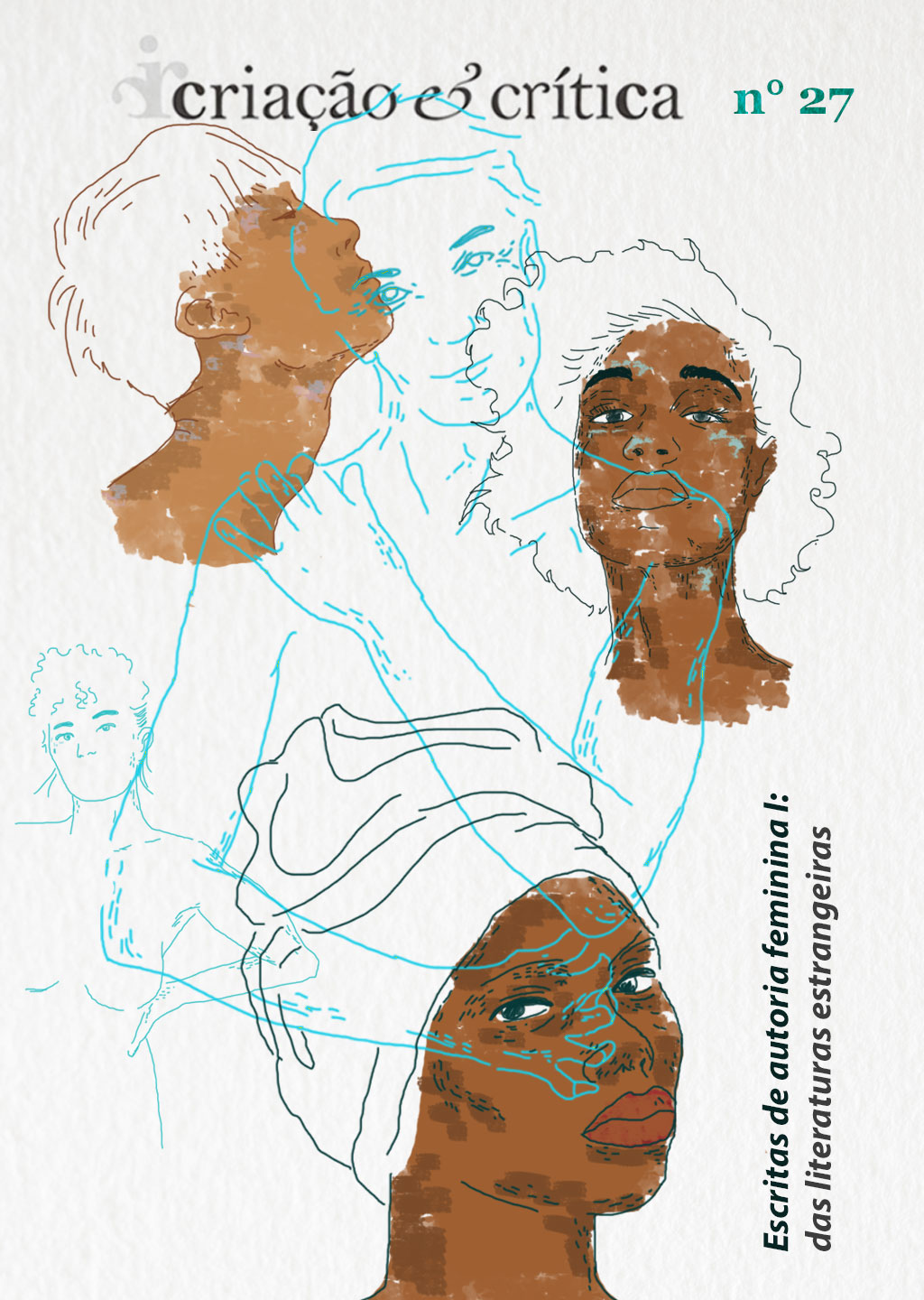It had all begun like a dream: writing as presence in Second Class Citizen, by Buchi Emecheta
DOI:
https://doi.org/10.11606/issn.1984-1124.i27p4-22Keywords:
Nigerian Literature, Postcolonial Literature, Female authorship, Buchi EmechetaAbstract
This paper analyzes the construction of writing as an instrument of presence in the novel Second class citizen (1974), by the Nigerian writer Buchi Emecheta, from the point of view of Adah, aiming to investigate how writing emulates the sense of presence through the character’s experiences. The narrative moves in two divergent spaces, Nigeria and England, resonating several issues concerning the female condition in the context of decolonization. Throughout the story, Adah fights against the system of male dominance and promotes independence based on her desire for writing. In this sense, the character writes herself out, becoming aware of her existence and marking her identity on the diasporic territory. To understand the effects of language and the role of writing as a presence, we base our discussions on Fanon (2008), Hall (2013), Anzaldúa (1987; 2000), and Evaristo (2008), among other contributions. We come up with the assumption that the character builds a presence-writing in the way she assumes her real identity, overcoming the oppressive condition imposed upon women.
Downloads
References
ANZALDÚA, G. Borderlands: the new mestiza = La frontera. San Francisco: Aunt Lute, 1987.
ANZALDÚA, G. “Falando em línguas: uma carta para as mulheres escritoras do terceiro mundo”. Tradução de Édna de Marco. Revista Estudos Feministas, Florianópolis, v. 8, n. 1, p. 229-236, 2000.
BAROSSI, L. “(Po)éticas da escrevivência”. Estudos de literatura brasileira contemporânea, Brasília, n. 51, p. 22-40, 2017.
BHABHA, H. K. O local da cultura. Tradução de Myriam Ávila, Eliana Lourenço de Lima Reis, Gláucia Renate Gonçalves. Belo Horizonte: Editora UFMG, 2013.
BONNICI, T. O pós-colonialismo e a literatura: estratégias de leitura. Maringá: Eduem, 2012.
CHAUDHRY, S. Z. African women writers and the politics of gender. 2014. 261 f. Tese Doutorado. University of Glasgow, Glasgow, 2013.
EMECHETA, B. Second class citizen. New York: G. Braziller, 1975.
EVARISTO, C. “Escrevivências da afro-brasilidade: história e memória”. Releitura, Belo Horizonte, n. 23, 2008.
FANON, F. Pele negra, máscaras brancas. Tradução de Renato da Silveira. Salvador: EDUFBA, 2008.
HALL, S. Da diáspora: identidades e mediações culturais. Tradução de Adelaide La Guardia Resende [et al.]. Belo Horizonte: Editora UFMG, 2013.
MBEMBE, A. Crítica da razão negra. Tradução de Marta Lança. Lisboa: Antígona, 2014.
SPIVAK, G. C. Pode o subalterno falar? Tradução de Sandra Regina Goulart [et al.]. Belo Horizonte: Editora UFMG, 2010.
SPIVAK, G. C. “In response: looking back, looking forward”. In: OLIVEIRA, M. P. [et al.] (Org.) Cartografias da subalternidade: diálogos no eixo sul-sul. Salvador: EDUFBA, 2014.
WALKER, A. “A writer because of, not in spite of, her children”. In: DAVEY, M. Mother reader: essential writings on motherhood. New York: Seven Stories Press, 2001.
Downloads
Published
Issue
Section
License
Copyright (c) 2020 Francisco Romário Nunes

This work is licensed under a Creative Commons Attribution-NonCommercial-ShareAlike 4.0 International License.
Authors who publish with this journal agree to the following terms:
- Authors retain copyright and grant the journal right of first publication with the work simultaneously licensed under a Creative Commons Attribution License that allows others to share the work with an acknowledgment of the work's authorship and initial publication in this journal.
- Authors can enter into separate, additional contractual arrangements for the non-exclusive distribution of the journal's published version of the work (e.g., post it to an institutional repository or publish it in a book), with an acknowledgment of its initial publication in this journal.
- Authors are permitted and encouraged to post their work online (e.g., in institutional repositories or on their website) before and during the submission process, as it can lead to productive exchanges, as well as earlier and greater citation of published work (See The Effect of Open Access).



